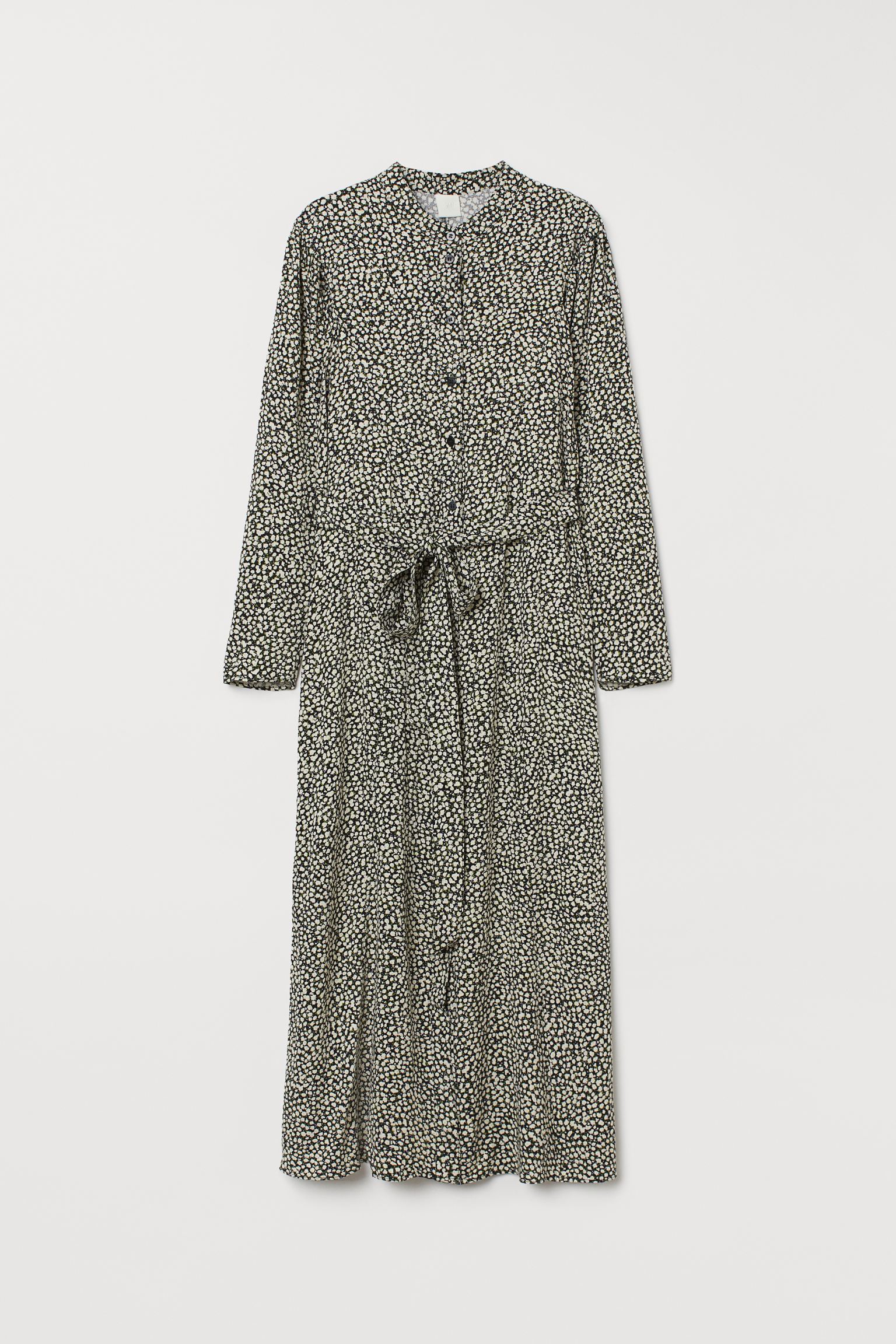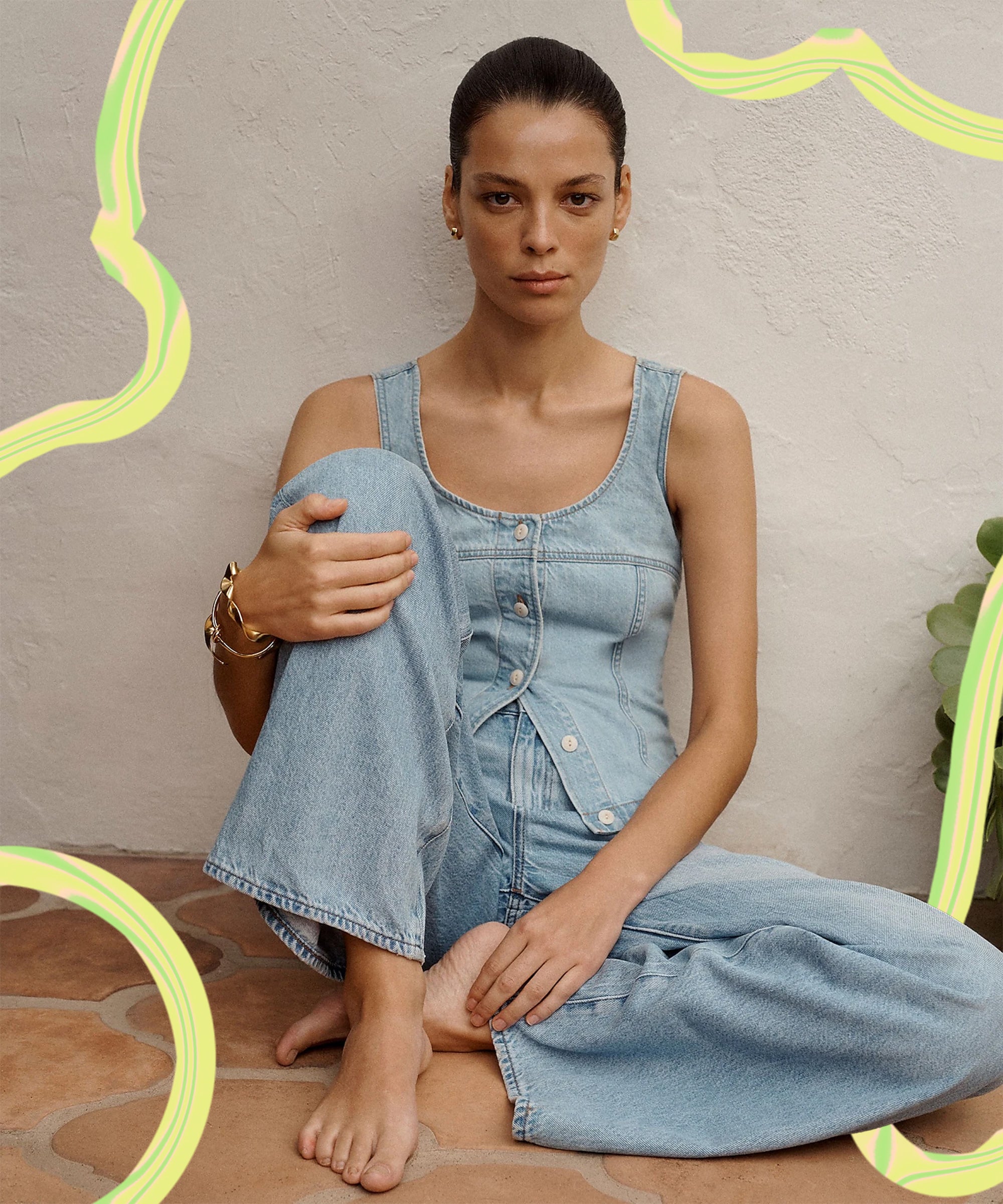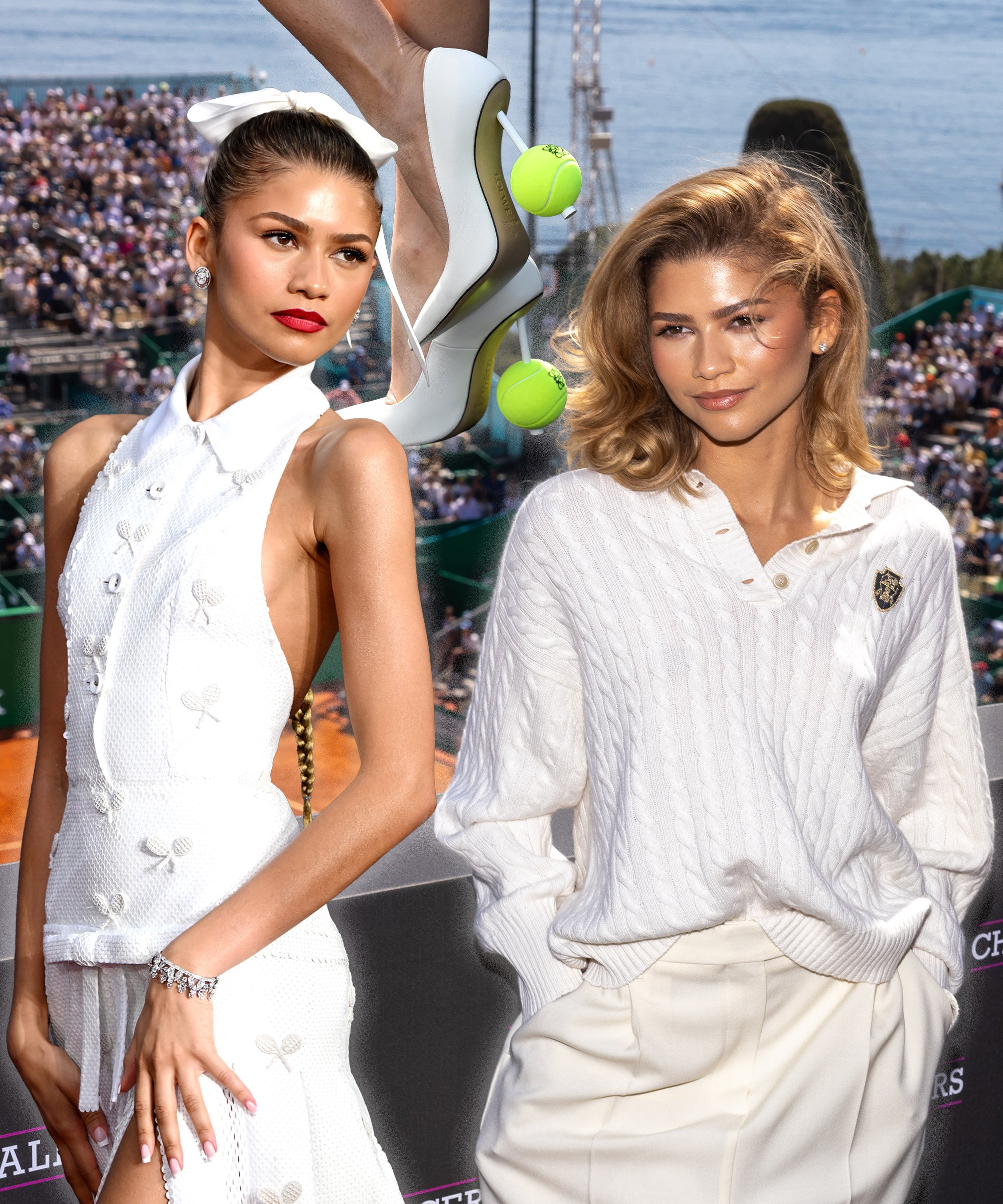

The fashion industry isn’t always the most conscious — socially, economically, or ecologically. The retail business loses thousands (if not millions) of dollars every year on wasted materials and the move towards fast fashion is digging our planet into a serious hole. But despite all of its faults, many of us still find ourselves attracted to fashion more than any other industry. Fortunately for us (and the environment), there are a few select members of fashion’s inner circle that are using their voices to change the way the industry works — specifically on the sustainable front.
The six ladies ahead might draw us in with their unique abilities to put outfits together and pose for the camera, but it’s their authenticity and dedication to inspiring change that really keeps us coming back for more. From Reese Blutstein of @doublexposure, who’s constantly putting pressure on brands to use less paper and cardboard in their packaging, to Natasha Halesworth, whose brand, The Consistency Project, makes shopping for recycled clothing easier than ever — it’s clear that these women are dedicated to making the fashion industry a more conscious, eco-friendly space.
In time for Earth Day today, they share advice on how we can all reduce our carbon footprint, starting with our closets.
At Refinery29, we’re here to help you navigate this overwhelming world of stuff. All of our market picks are independently selected and curated by the editorial team. If you buy something we link to on our site, Refinery29 may earn commission.
How would you like to see the fashion industry reduce its environmental footprint?
As fashion brands in the industry start to incorporate sustainability into their business, it’s important for them to push the status quo instead of settling for a “good enough” approach. Sustainability goes beyond the environmental impact but also [encompasses]human exploitation and many other social justice issues. The fashion industry should not only be changing a lot of wasteful processes and a broken supply chain but also be making an impact with political action and using its leverage (especially the larger corporations) to reform beyond fashion and get us closer to a circular economy.
What steps do you take on a daily basis to reduce your impact on the environment?
On the daily, I try to be mindful of all purchases I make and always reduce and reuse. Growing up I was raised not to waste… whether food or money. I’ve taken that ethos to my everyday lifestyle to reduce my waste, from bringing my own produce and shopping bags when grocery shopping, to trying to remember to bring my own take out containers if I’m eating out, to saying no straws, to choosing secondhand first whenever possible. I’m not perfect by any means but I celebrate constant progress. Even if I end up with a plastic take out container, I refuse to let it be for one-time use. Could I be considered a hoarder at times? I embrace it.
What’s one thing that everyone can do to reduce their environmental impact?
Choose secondhand first. To leverage what already exists can make a huge impact. Secondhand has always been inclusive, available in most cultures, and accessible to all social classes. Fortunately nowadays secondhand has been even easier to access. Remember that vintage = secondhand.
Also compost. Composting is so important and actually easy. Keep a container in your freezer to put your compost in/prevent smells and bugs. If you don’t have a compost bin you can easily find the nearest drop off center here.
What sustainable brands are your favorite?
I primarily shop secondhand and surprise, mainly pick through what hasn’t sold from my shop. But honestly I love any and every secondhand shop/platform out there. From thrift stores to modern resale sites to vintage furniture shops to Craigslist, I love them all.
What is the best sustainable fashion purchase you’ve made?
My vintage Levis. When it comes to denim, I haven’t looked back.
How would you like to see the fashion industry reduce its environmental footprint?
Since the fashion industry is so massive and has such an impact on the environment, it is crucial that brands do everything they can to become more sustainable. From materials to packaging to transport, there is always room for finding the most sustainable method.
What steps do you take on a daily basis to reduce your impact on the environment?
I really try to limit my impact on a daily basis, I pretty much never drink from plastic bottles, and if I have to, I always reuse things as many times as I can before recycling. I purchase mainly from sustainable brands, and I also shop vintage or secondhand from thrift stores or shops like The RealReal. And most importantly, I eat an entirely plant-based diet which is probably the most impactful thing you can do for the environment.
What’s one thing that everyone can do to reduce their environmental impact?
I, of course, always recommend eating plant-based, or at least cutting out animal products a majority of the time. It’s better for the animals, the environment, and yourself.
What sustainable brands are your favorite?
There are honestly so many great sustainable beauty, clothes, and accessories brands out there now, it’s hard to choose. As I mentioned, shopping secondhand is an amazing way to extend the life of clothing, and the RealReal is one of my favorite places to find some really cool pieces. Sans Beast is a small vegan leather accessories brand I discovered recently, and this brand called Rothy’s is amazing because they use old water bottles to make threads that they weave into sneakers and sandals. And then I love that Stella McCartney is a luxury brand that doesn’t compromise their ethics for fashion, and uses all vegan and sustainable materials.
What is the best sustainable fashion purchase you’ve made?
Probably some of my vintage thrift finds would be included in my favorites, and some vegan leather pieces from Nanushka. And tons of sustainable beauty products.

This midi dress, in twill made from Lenzing™️ EcoVero™️ viscose, puts you well on your way to “sustainable influencer” status, too.
How would you like to see the fashion industry reduce its environmental footprint?
I’m so inspired by the brands who are putting in the hard work to reduce their environmental footprint and to create sustainable income for their employees. What I would love to see is big corporate brands using their power and resources to invest in the research, development, and technology that will eventually create the circular economy that will save our planet. This means developing fabrics and designs that make use of sustainable, recycled, waste, or regenerative materials which can ultimately be up-cycled into new products rather than going to the landfill. This will dramatically reduce the natural resources required for and affected by manufacturing as well as eliminate waste completely.
What steps do you take on a daily basis to reduce your impact on the environment?
By no means am I a model citizen but I do try. I take public transportation and try to wear what’s already in my closet or buy secondhand rather than succumbing to the pressure and allure of constantly consuming new things. I’m vegan and I avoid animal products in my diet, my closet, and in my home. I use a reusable water bottle daily and carry silverware when I travel. When possible, I try my best to support sustainable fashion brands and use natural beauty and cleaning products, though these options aren’t always available, accessible, or affordable, which is problematic in its own right.
What’s one thing that everyone can do to reduce their environmental impact?
Once you get the hang of it, I think a plant-based diet is the easiest and most sustainable way that people can significantly reduce their environmental impact. It’s a total misconception that a plant-based diet is expensive or only accessible to the privileged. The most affordable way to do this is to cook meals centered around legumes and grains which can be bought in bulk. Families all over the world and at all income levels eat this way and by avoiding animal products, we can avoid the irreparable harm of deforestation, pollution and water scarcity that the meat and dairy industries cause.
For perspective, it takes 100-200 times more water to raise a pound of beef than it does to raise a pound of plant foods while hundreds of millions of people worldwide don’t have access to clean water. And 700 million tons of food that could be consumed by humans each year, instead goes to livestock while hundreds of millions of people do not have enough food to live a healthy, active life. The thing is, the decision doesn’t need to be all or nothing. Eating plant-based just one day a week, one meal a day, or even swapping oat for dairy milk in your coffee consistently over time will make a difference in our collectively reduced demand for animal products. This in turn will help us to divert what’s left of our planet’s precious resources to sustain human beings rather than the animals being bred solely for the purpose of slaughter.
What sustainable brands are your favorite?
I love Patagonia for technical gear, and Phlemuns, Ahluwalia, Bode, Tome, Bite Studios, Collina Strada, Bethany Williams, Richard Malone, Cienne, Mara Hoffman, Maggie Marilyn and of course Stella McCartney for directional fashion. Born Native and Reformation are great for trendy pieces. I love Back Beat Rags, Jungmaven, and Everybody.World for basics. Agolde’s organic collection, E.L.V Denim, and Re/Done are great for denim. Araks, Pansy, Hara and Swedish Stockings make great intimates and hosiery, and Rafa, Matt & Nat, Nomadic State of Mind and Sydney Brown make great shoes.
What is the best sustainable fashion purchase you’ve made?
My ForDays membership which up-cycles soiled and worn out tees into new tees in a closed loop system.
How would you like to see the fashion industry reduce its environmental footprint?
I believe focusing on closing production loops would be ideal. If all brands used non-toxic dye, biodegradable fabrics, and scraps to make new clothes, we could make a big impact. But this is just the surface.
What steps do you take on a daily basis to reduce your impact on the environment?
I try my best to not use single use plastics. I also compost and recycle my textile scraps.
What’s one thing that everyone can do to reduce their environmental impact?
I think we could all lower our animal product consumption, use reusable containers instead of throwing away plastic, and be kinder to each other.
What sustainable brands are your favorite?
I love Kablo’s water bottles and BKR bottles. I also love Follain’s refillable Everything Soap.
What is the best sustainable fashion purchase you’ve made?
I adore Back Beat Rags.
How would you like to see the fashion industry reduce its environmental footprint?
By using less packaging when sending clothes. Reuse boxes, bags, tissue paper, etc. We don’t need things wrapped in plastic because we have plenty of alternatives. I would also like to see brands finding more sustainable ways of producing and dying their clothes.
What steps do you take on a daily basis to reduce your impact on the environment?
I have started composting which is a huge change for the environment because a lot of food cannot break down in landfills. I also always bring my own grocery bags to the store, bring my own reusable cup as well as a metal or glass straw — an easy way to not forget those things is to keep them in your purse or car. I always turn off the lights when I am not in a room, so the only lights that are on in my house are the ones in the room that I’m in. I keep my heating and air off unless it is truly needed and try to only buy the amount of food I can eat so I do not waste. And I do, of course, recycle when I can. These are a few easy things everyone can do.
What’s one thing that everyone can do to reduce their environmental impact?
Be more conscious. Being knowledgeable about what you are consuming; where the food and clothes you buy are coming from; and who these brands are impacting during their production process. Honestly, the biggest thing people can do is inform themselves. The more you know, the more you can do. And voting green is a huge thing if you are able to choose candidates who you know will help better our environments and make it a priority to change our world for the better. We are not all perfect. We will make mistakes and mess up, but as long as we are actively trying, that is what matters most.
What sustainable brands are your favorite?
Maison Cleo, Ode To Odd, Collina Strada, Mari Giudicelli, Simon Miller, Mara Hoffman, Filippa K, and anything vintage of course.
What is the best sustainable fashion purchase you’ve made?
Most of my favorite fashion purchases are vintage which is always something that is more sustainable then buying new. But I do have a pair of workout pants that are made out of 25 recycled plastic water bottles which I think is pretty cool. They are by Girlfriend Collective.
How would you like to see the fashion industry reduce its environmental footprint?
The million dollar question! With the interest in sustainable fashion surging, I think some brands are making great strides, but I’d love to see more brands make an effort to produce slow fashion (like make-to-order items), use fabric that’s already in the waste stream, sell more vintage/secondhand clothing, and update their packaging to minimize the use of virgin plastics (paper packaging would be fab!).
What steps do you take on a daily basis to reduce your impact on the environment?
I try to always be cognizant of my footprint on the day-to-day, avoiding single-use plastics, composting, recycling my film plastics, and trying not to buy what I don’t need. It’s a start, but I’m not going to lie, it’s really hard. Especially when you love beauty and fashion and want to indulge in wardrobe updates. But it’s possible.
What’s one thing that everyone can do to reduce their environmental impact?
I think a good place to start is by bringing your lunch to work in a reusable container. I realized a few years back that the amount of seamless I was ordering was contributing so much to landfills, so I started packing my lunch more. There are a ton of other ways to reduce your impact like eating less meat and composting your food waste.
What sustainable brands are your favorite?
Lilt, Cie Denim, Consistency Project , and TBH my mom’s closet. Also stores like Courtyard LA have great rolling vintage sections.
What is the best sustainable fashion purchase you’ve made?
Vintage! I’ve always loved thrifting because the hunt gets my adrenaline pumping, but as I started educating myself more about my own environmental impact, I realized that thrifting and buying vintage is one of the best ways to engage in fashion ethically, especially since you are purchasing an item that already exists in the waste stream. I have a beautiful camel coat I’ve been wearing for 6 seasons of winters that I found at the bottom of a clothing bin at a Salvation Army in the Bay Area. It’s definitely my most treasured find. I’d say 70% of my closet is thrifted.
Like what you see? How about some more R29 goodness, right here?
Your Sustainable Lingerie Starter-Pack




